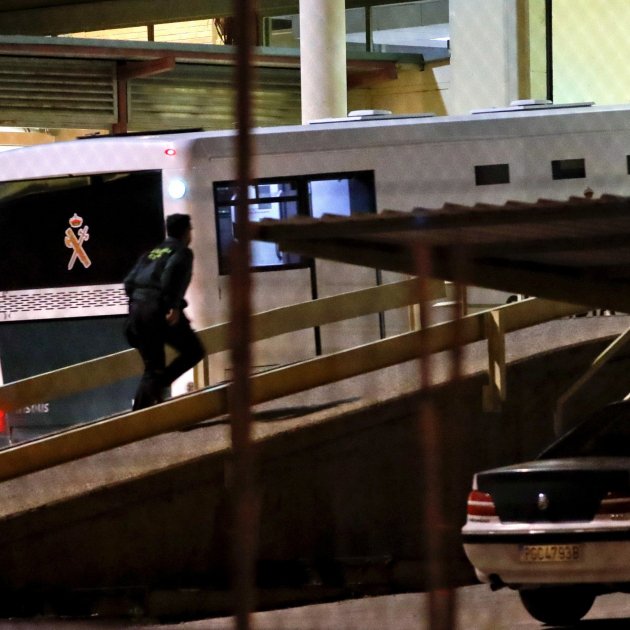Neither mobiles nor computers can enter Madrid's Soto del Real prison. All regular visitors know this. Prison is a kind of bubble which traps inmates in time and space, it wrests them from their daily life and isolates them. That's what the punishment is. Mobiles and computers are banned. Even for visitors.
Frequent visitors know this perfectly well. Once they enter within the perimeter of this centre, constructed in the middle of an inhospitable landscape 48 kilometres (30 miles) from Madrid, they know they cannot go through the building's door with such devices. Before entering the facilities and passing through the meticulous checks they have to get rid of their gadgets. Right by the entrance, out in the elements, next to the glass door, there are a set of numbered lockers to leave them in along with anything else a visitor is carrying. At Estremera prison, the lockers work with coins: the user chooses the one they want, puts in their coin and locks it. At Soto del Real, you keep you things in the locker a civil servant assigns you and they are the one who gives you the key.
When on Friday 29th December, in the middle of the Christmas holidays, Jordi Pina and his wife, also a lawyer, went to Soto del Real they had their mobiles in their pockets. The lawyers were there to visit the former president of the Catalan National Assembly, Jordi Sànchez, with whom they have not only professional, but also personal links. Normally, Pina avoids arriving at the centre with his phone, but that Friday they were carrying them and had to ask for a key. The civil servant gave them the one for locker number 18.
When leaving their mobiles, there was nobody at the door to Soto del Real. They were alone. They put their phones in the locker, locked it shut and entered the building where the visit took place with no problems. Things stopped being so normal when they were leaving. Exiting the building, going to find their mobiles, the locker had been broken into and their phones had disappeared. There were other locked lockers, but the only one forced open was number 18.
Thefts against visitors to prisons aren't normal, whether in solidarity with those bearing the pain of having someone close to them locked up or by the simple logic that it doesn't make sense to commit a crime in a centre closely guarded by the state's police forces. As such, no camera or guard watched the lockers. It doesn't matter that they're outside the building and it's the centres' officials who force visitors to leave their belongings there, which they should assume responsibility for.
Thefts are not common the lawyers were assured by the Civil Guard officer who attended in response to the incident to hear their complaints. So infrequent that the Interior ministry sent them a letter a few days later expressing their regret that it had happened. So infrequent that the centre had no insurance to cover the loss of the two phones. Much less still to protect them from the risk the information contained on those devices was exposed to. As such, the complaint the lawyers made to the police did little good.
The prison isn't prepared for thefts suffered by visitors. Or maybe it's not prepared to welcome those accused of sedition, of a supposed public, tumultuous uprising, even if as a preventive measure. Soto del Real and Estremera have some very special inmates and strange things happen there which didn't use to happen.
Days after the incident, a camera appeared at Soto del Real which looks over the lockers where visitors leave their belongings.
